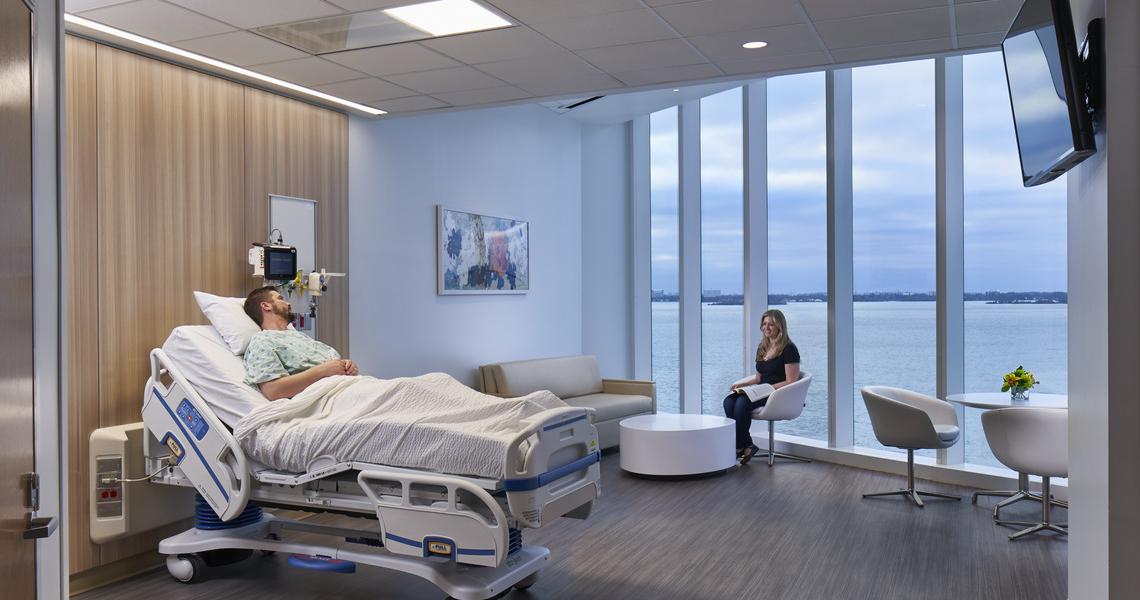As the piece indicates, “hurricane season is officially here and Hurricane Dorian is expected to hit Florida over the holiday weekend” as a Category 4 storm. “With hurricanes worsening each year, some hospitals on the coast are updating their building to be more resilient and able to withstand strong wind and torrential flooding.
The resilience of hospitals is especially vital for areas that only have one major medical center. On the islands of Nantucket and Miami Beach, the latter of which may be affected by Hurricane Dorian, these central hospitals don’t just have to keep the lights on during a storm – they also serve as the center of the entire island’s emergency management during natural disasters.”
The full Fast Company article is available online. Here are key excerpts:
Steve Sonenreich, Mount Sinai Medical Center President & CEO
“Along with a power plant that is designed to withstand 180+ MPH sustained winds, when the generators are elevated 40 feet above the flood plane and we can power up and run our operations for nine days, we’ve created facilities that are as hurricane-proof as I think is possible.”
Natalie Petzoldt, principal at Cannon Design who led the Mount Sinai project
“You have to think of these medical centers as mini-cities that can sustain themselves. They bring their own staff, and staff stay on site 24 hours a day during these storms.”

Dennis Patnaude, facilities director at Nantucket Cottage Hospital
“When you’re 30 miles out to sea, you only have one option. Whatever your health conditions are and whatever Mother Nature throws at you, you have one place to go.”

Michael Zensen, project architect at CannonDesign
According to Zensen, the windows of the Mount Sinai surgican tower have layers of tempered glass that will shatter to absorb the impact of a flying object. Then, there’s also a plane of strong plastic that’s laminated on the inside of the glass to provide extra support. The walls themselves are built of precast concrete that’s welded into a steel frame. It’s a solid 8 inches thick. Says Zensen, “there’s no way anything is getting through.”
Brett Farbstein, resiliency lead at CannonDesign
The glass windows at Nantucket have another purpose. They’re made of hurricane-resistant glass and they’re designed in a residential style to allow people to open them – unusual in a medical setting. “You put in operable windows so if there was a need for summer, you’d be able to open them and provide cooling and ventilation if the power goes out,” explain Farbstein.
Jim Gordon, CannonDesign’s project manager for Mount Sinai Medical Center
Due to fears of flooding, CannonDesign decided to exceed the local building code requirement of buildings being seven feet above sea level by a full three feet. “I don’t think anyone can predict the future,” said Gordon. “It seems like a responsible way to do better than what’s required.”

